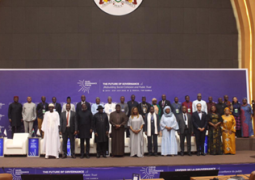
These set of new restrictions, if approved by the European Council, which is the body composed of representatives of the Member States of the European Union, will mean that The Gambia and Senegal face further visa restrictions on entries of its citizens into Europe. Already, the Gambia citizens require up to forty-five (45) days (from just two weeks) to process visa for entries, with up to 40% increase in visa fees to Europe.
The EU Commission has adopted proposals to introduce visa measures for passport holders from Senegal and The Gambia as leverage to push these two countries to cooperate further on the readmission of their nationals who are currently staying illegally in one of the EU countries,” local media in Senegal and The Gambia reported last week.
According to such reports, The Gambia and Senegal were among the countries that do not cooperate in taking back their citizens, who, based on international immigration laws, have no rights to stay in Europe. However, the EU Ambassador to The Gambia Corrado Pampaloni said the news was on the new law being implemented by the EU called Section 25 Visa Code.
With these new propositions, Gambian and Senegalese citizens will be subject to stricter demands under the new proposition to the European Council. These restrictions will “include the suspension of the issuance of multiple entry visas, as well as the optional waiver of visa fees for holders of diplomatic or service passports,” according to Seneweb.
Ambassador Pampaloni confirmed that the decision to institute such measures do not lie with the European Commission as a body.
“Rather, it is the European Council that has such powers to adopt policies against any country within bilateral cooperation agreements made by both states. So the Commission merely proposed the measures to the Council on the 9th November last week,” he further clarified.
Ambassador Pampaloni meanwhile, will not comment on the matter due to its sensitivity.
Meanwhile, The Gambia government sources also said they were shocked about the news of the new proposed restriction measures reportedly from the EU.
“The Gambia just completed a mission from the EU to assess levels of cooperation implementation by both parties that took its delegation to Switzerland and other EU member states. The EU also just sent a delegation to The Gambia last week where scores on both ideas were very high. “This is news to us,” sources highly placed in the government said.
According to our sources, The Gambia “had been compliant” with the EU demands. “Instructions from the highest office indicated that any Gambian citizen in detention facilities for violating EU laws would be accepted to be returned as per the EU immigration regulations,” he said.
The country maintains that over the past several months, they had been receiving more deportation flights than any time over the past one year or so, as a show of our commitment to the cooperation with the EU. “We had deportation flights from Italy, Germany and Switzerland. We do not expect such a decision from the EU,” said the source who’s a member of the National Coordination Mechanism on migration, a Gambia government task force constituted to handle cross cutting issues of migration and provide policy guidance and coordinate implementation of programmes at the highest level.
Gambia has over 65,000 legal residents in the European Union. The bloc also hosts over 45 million non-European nationals, constituting 10 percent of the EU population. “Europe does not want Gambians to leave Europe. But we have obligations to implement policies in line with international laws that Gambia and Europe are both parties to, especially around immigration,” he said.
Meanwhile, what is important, according to the diplomat is that efforts to save lives through the backway immigration to Europe are consolidated.
“On these journeys, smugglers do not care about lives of migrants onboard their boats. They throw out women and children into the sea when they realise the load on board is more than the boat’s capacity to carry. Mostly, women and children become victims of unnecessary deaths just because they want to reach Europe. This must not be allowed to continue,” he said.
“The European Commission – DG HOME – following the review of the Gambian cooperation on returns, has proposed new restrictive measures to the European Council. It is now up to the European Council to decide whether to accept the Commission’s advice or not,” he said, explaining that it may take up to three months to decide.
Read Other Articles In Headlines

Barrow calls for regional solidarity to address Sahel's governance challenges
Jul 31, 2025, 12:25 PM




